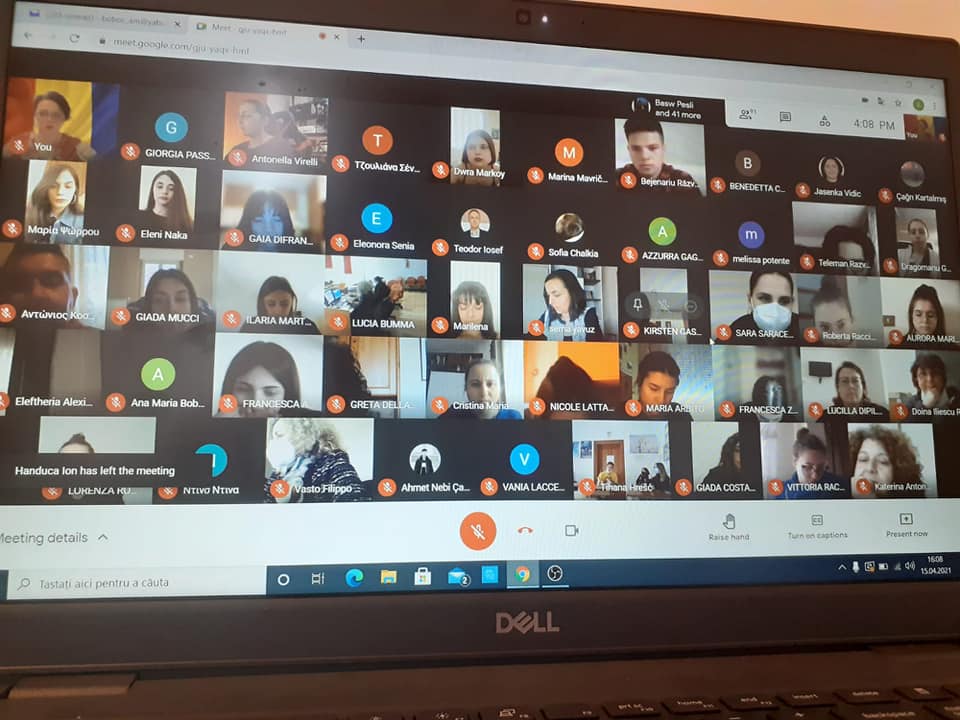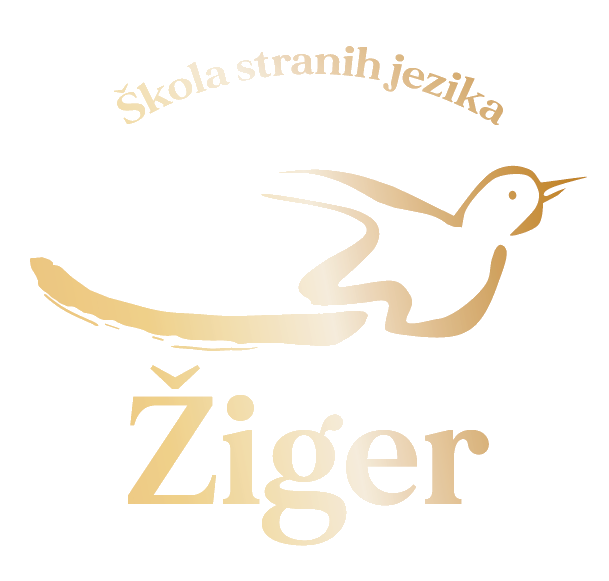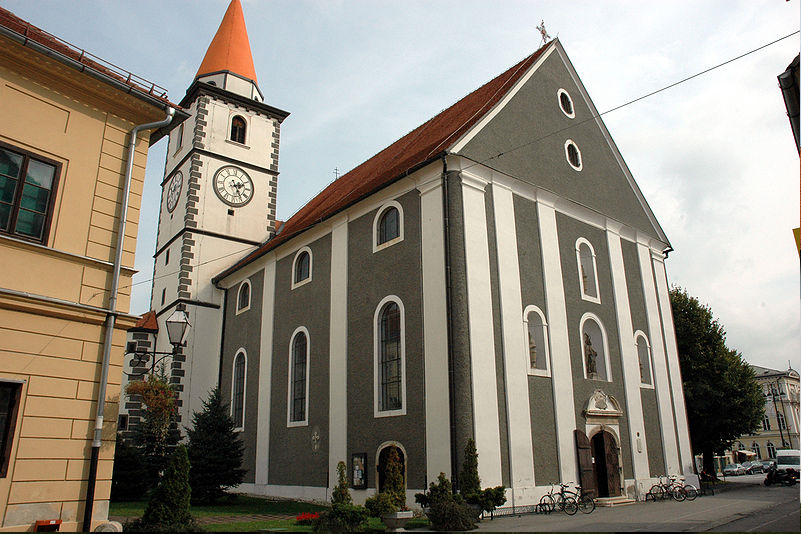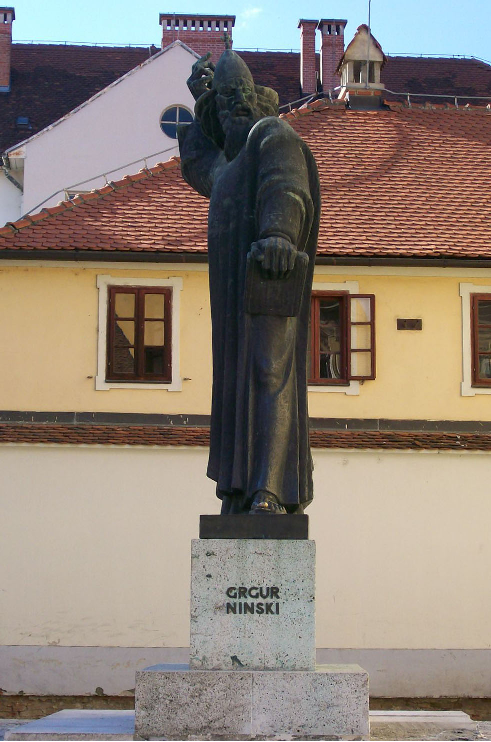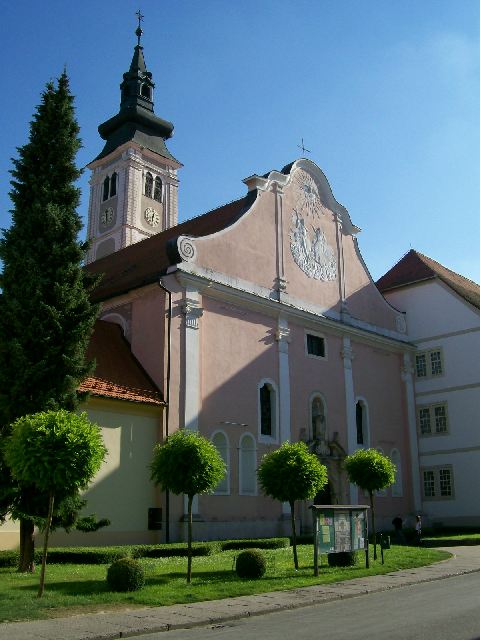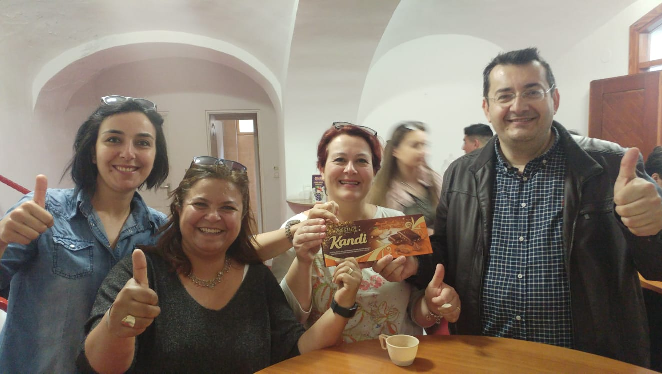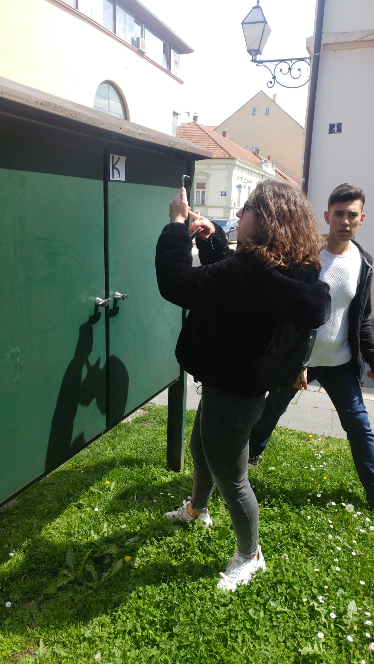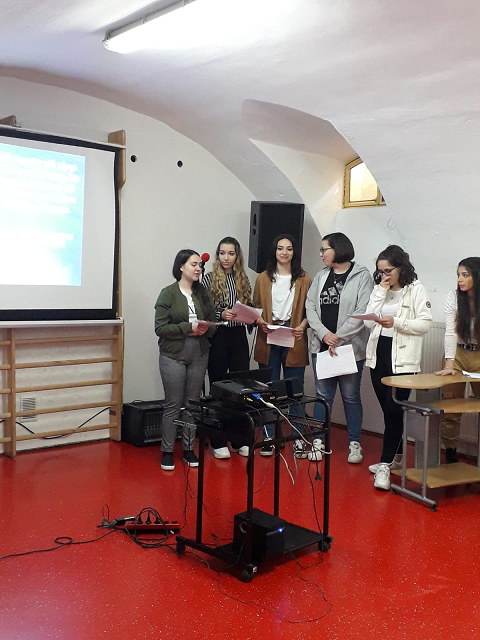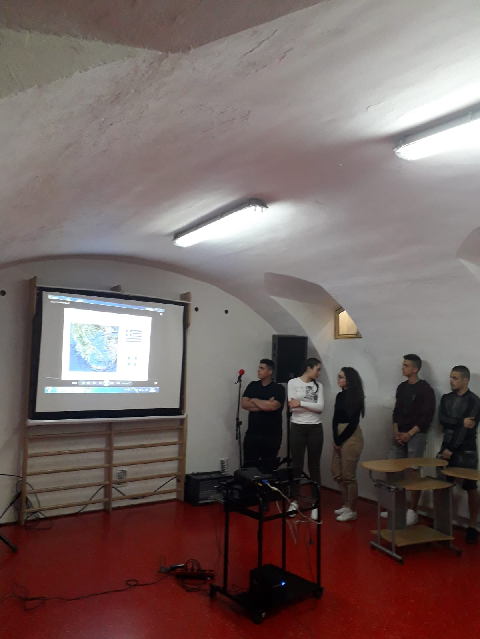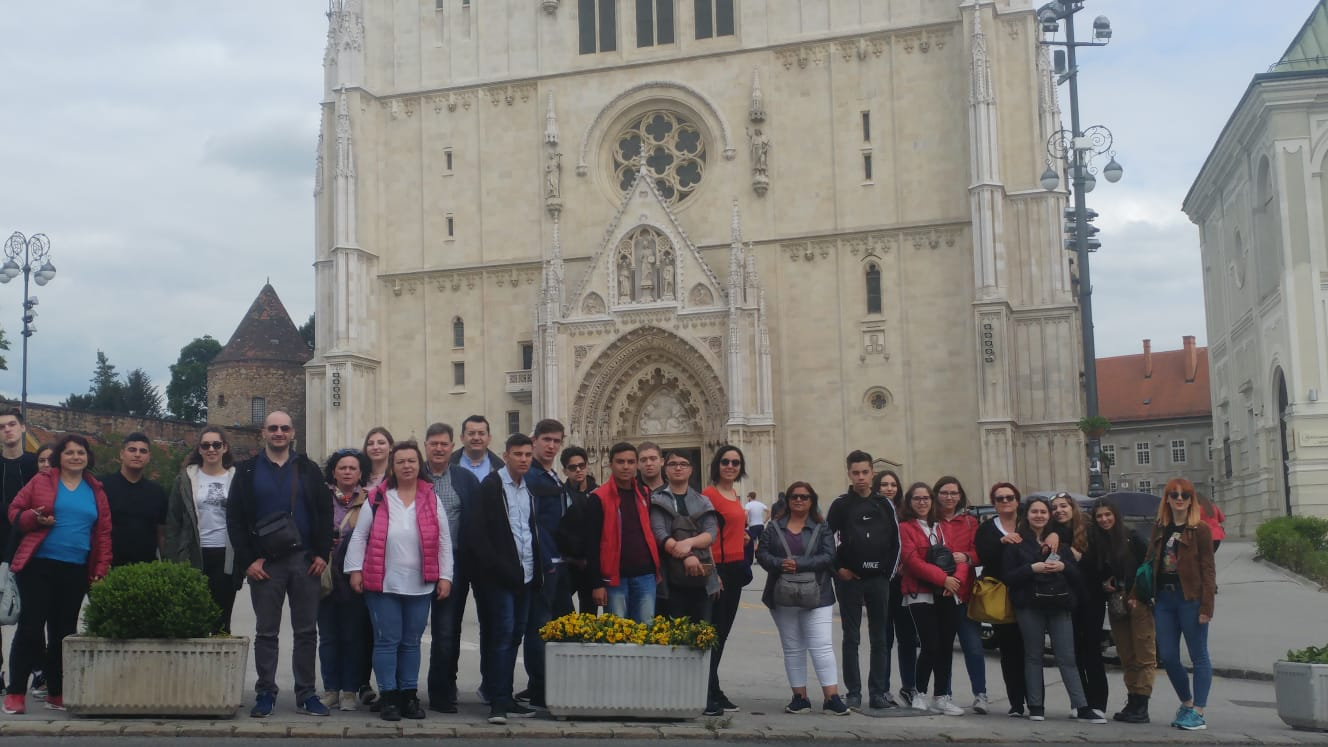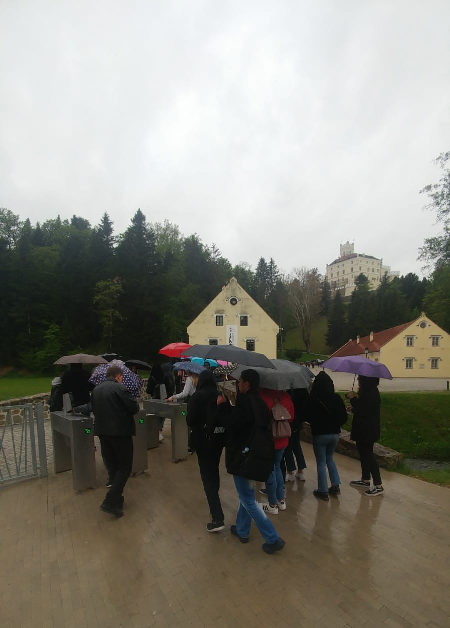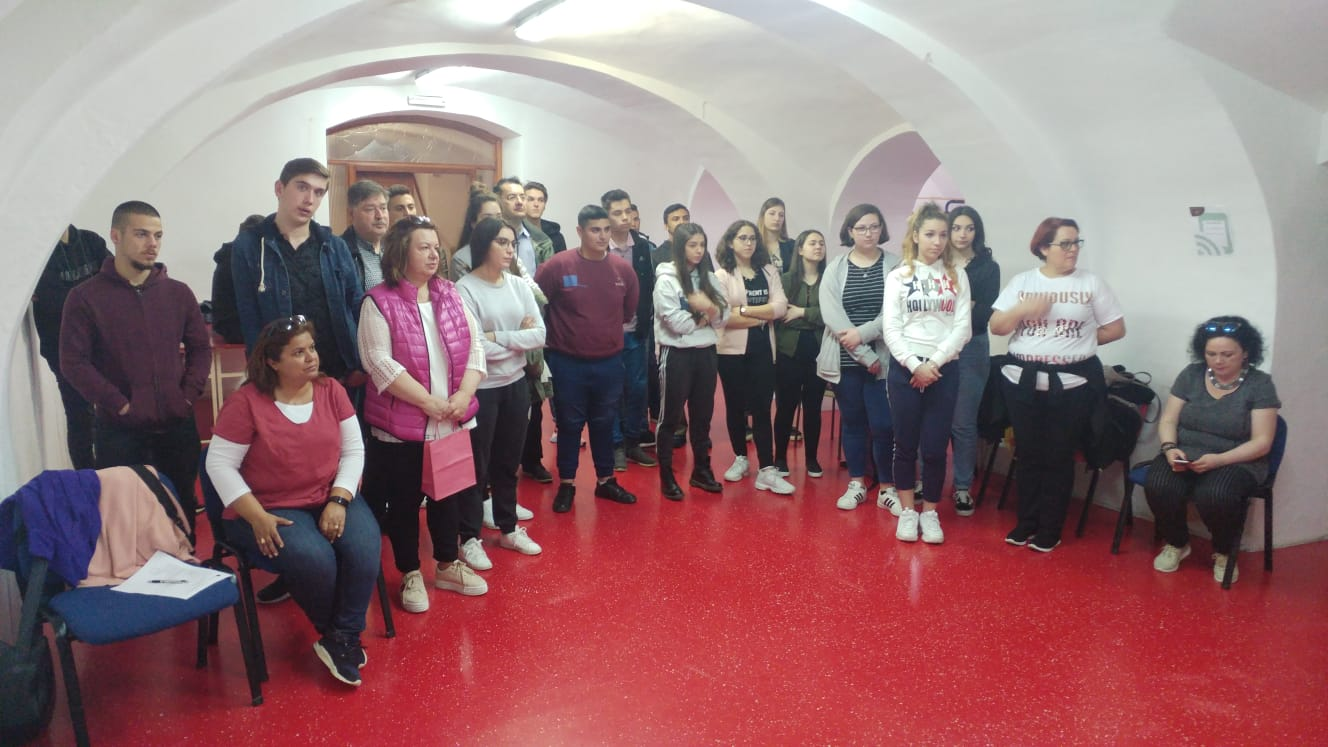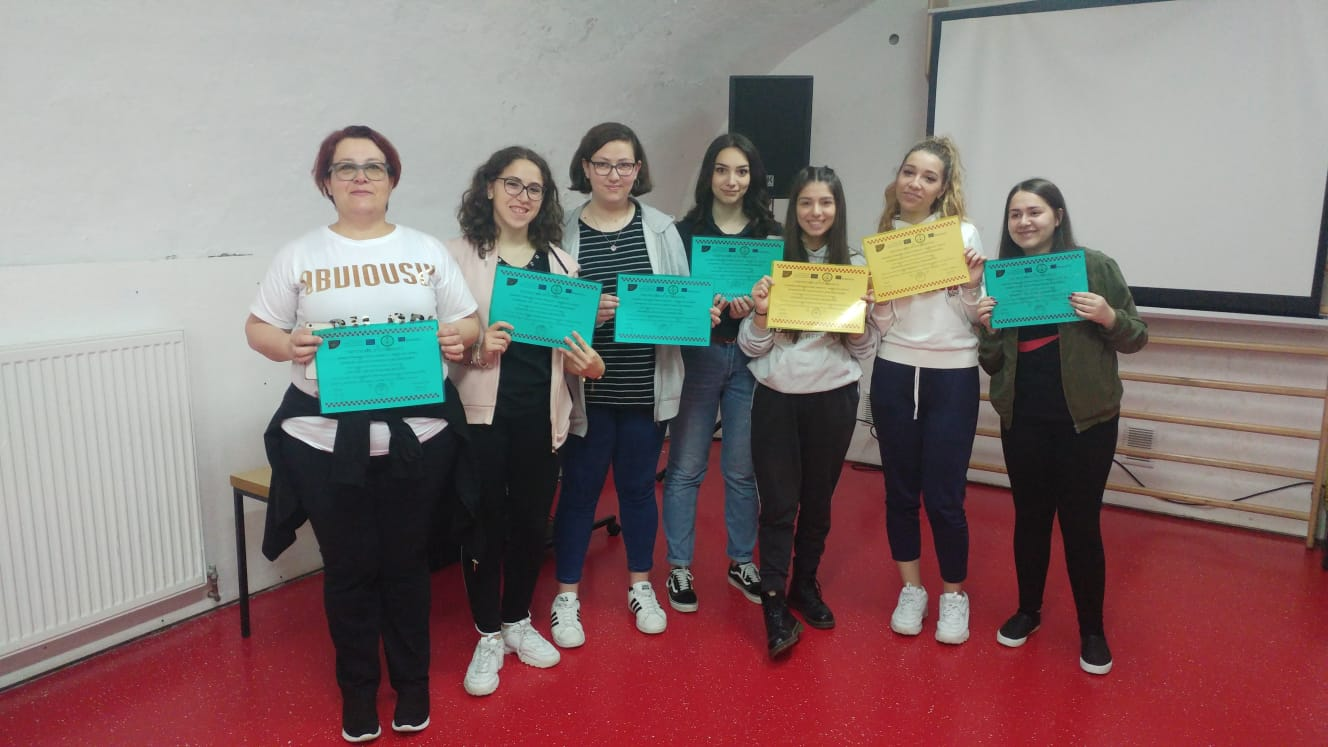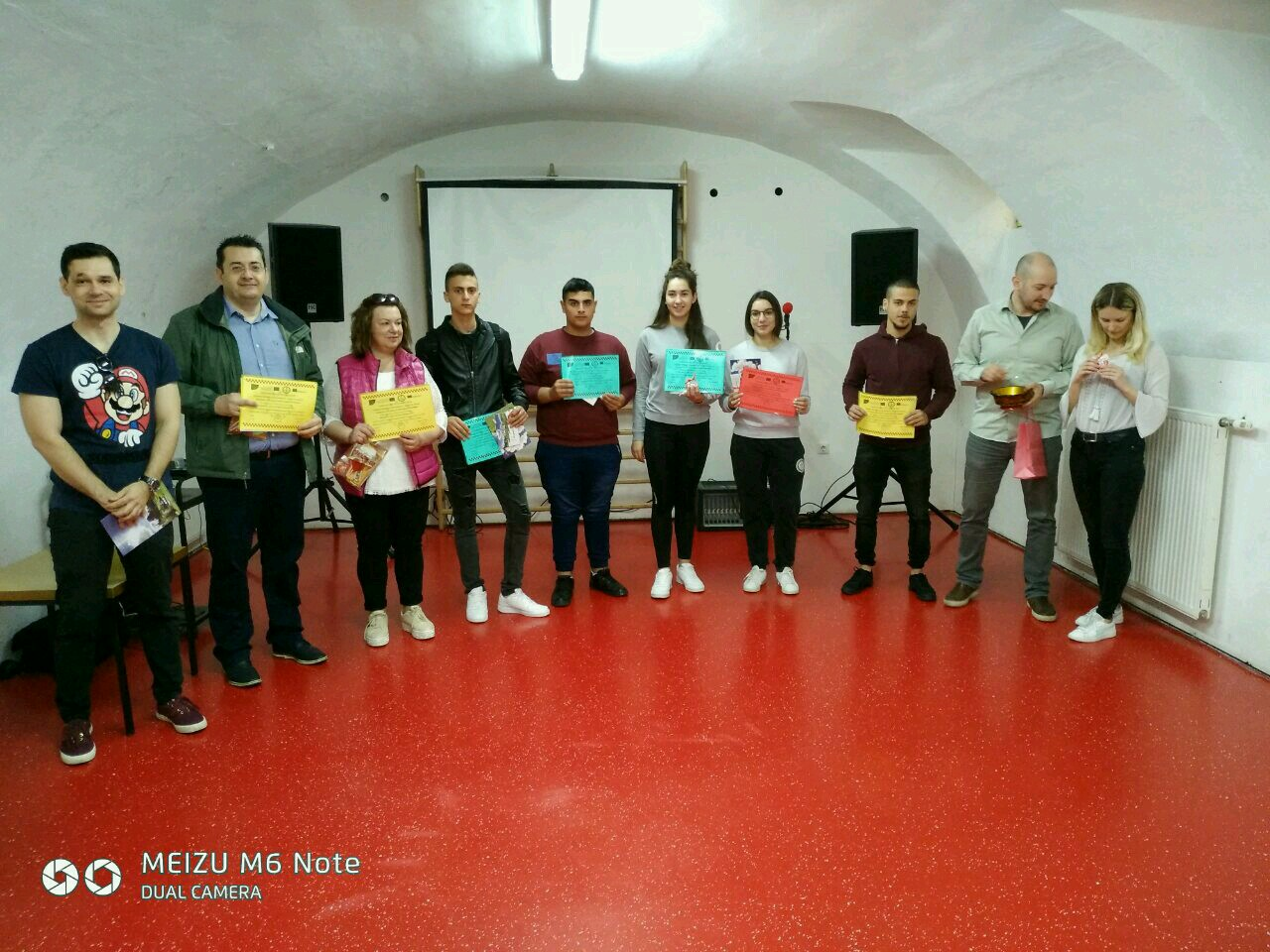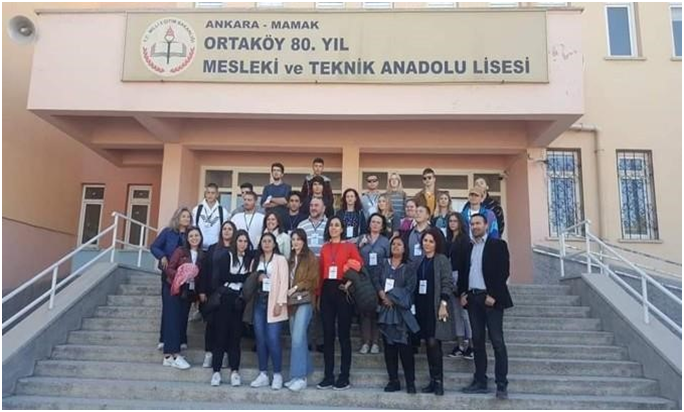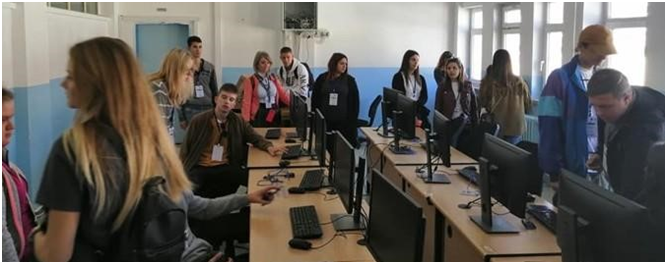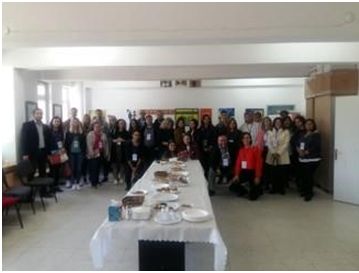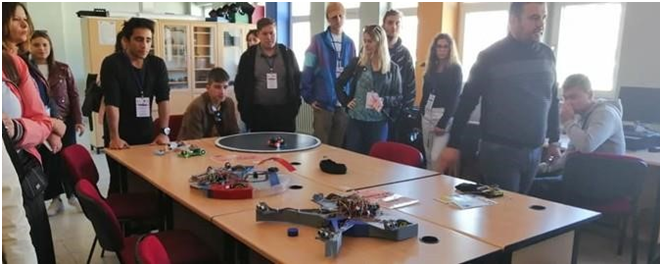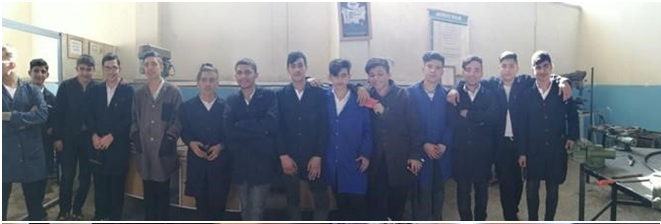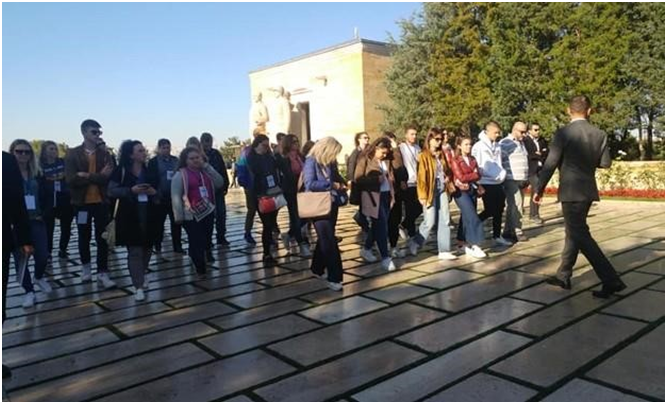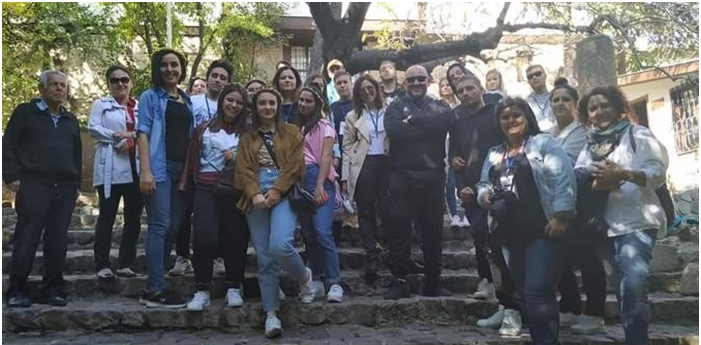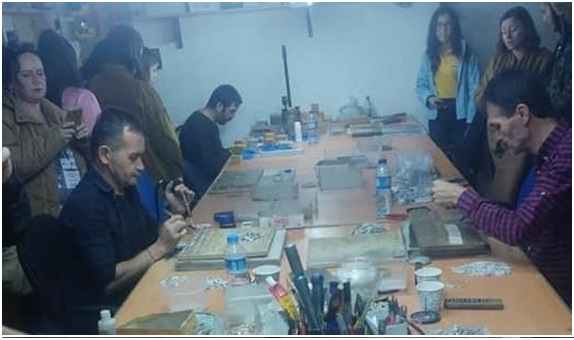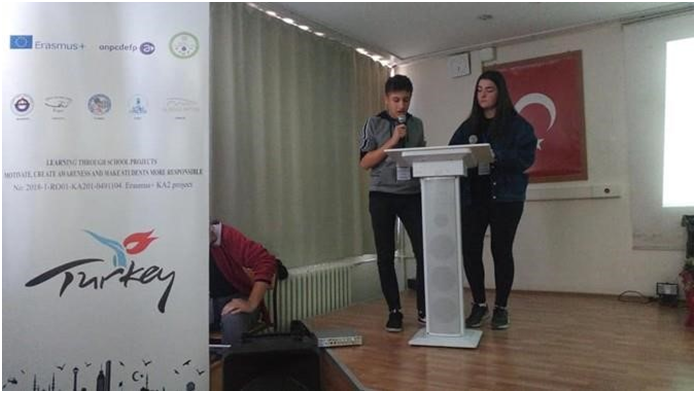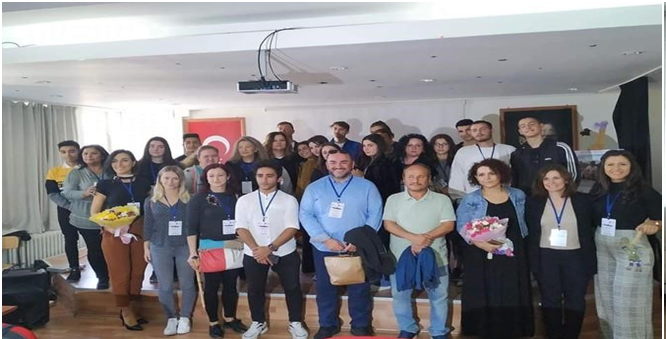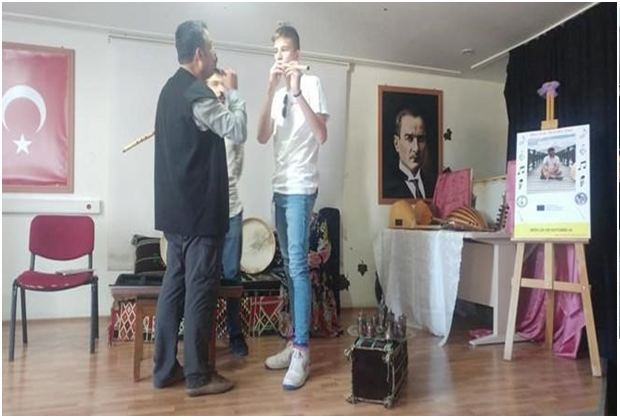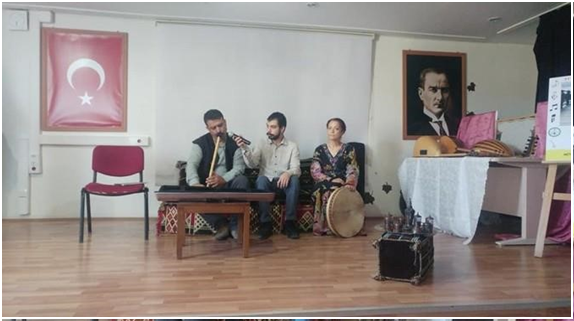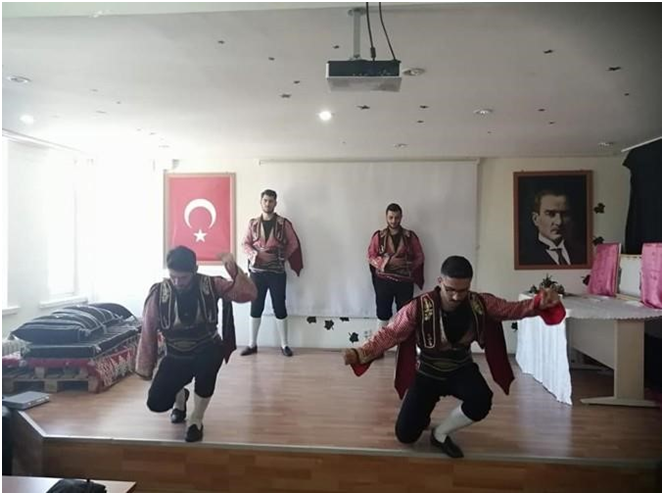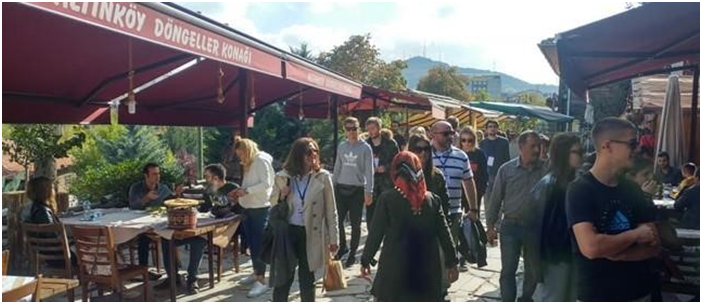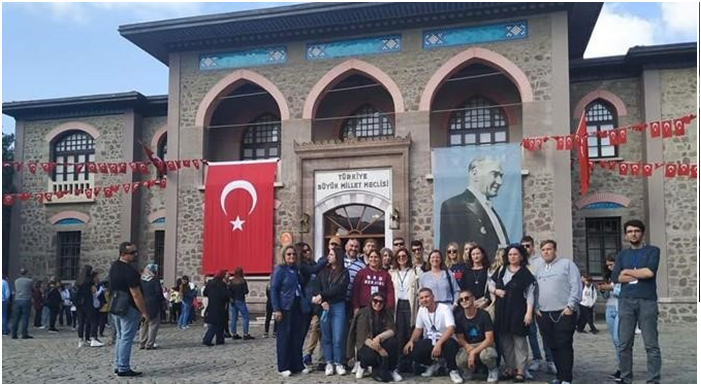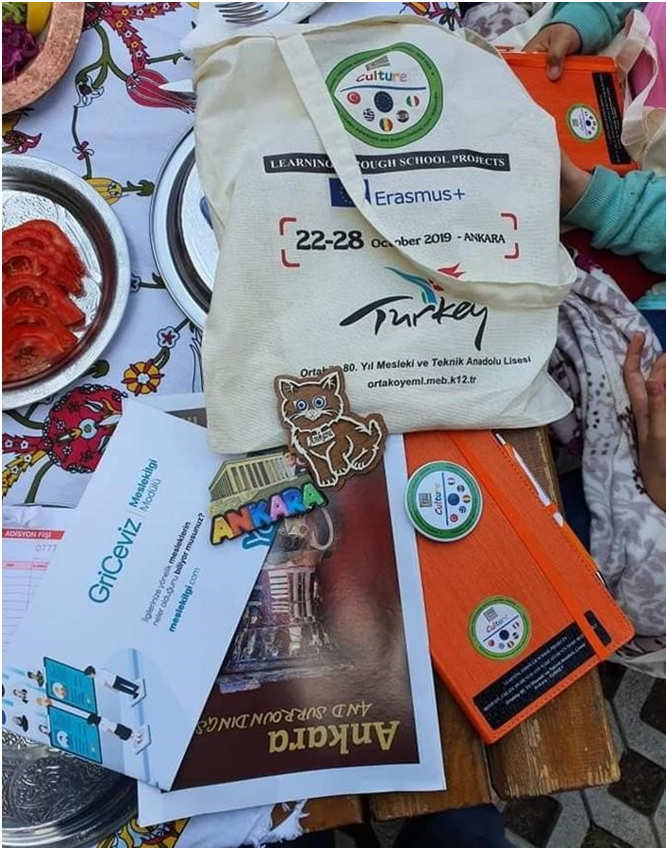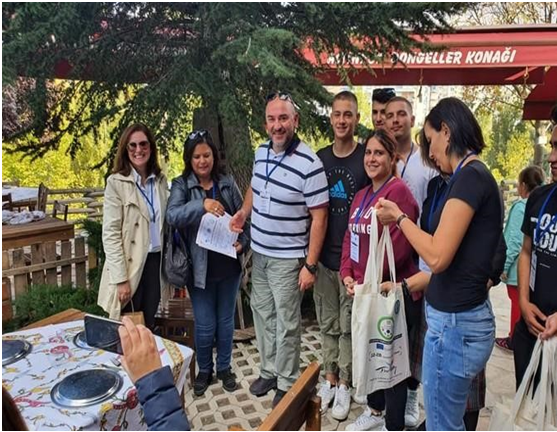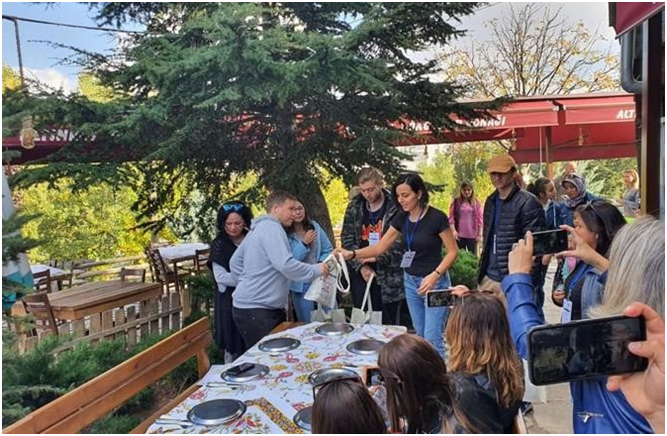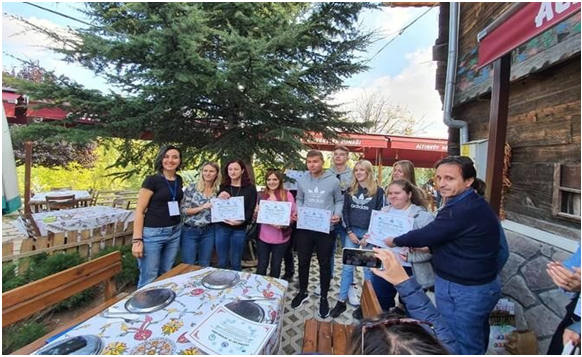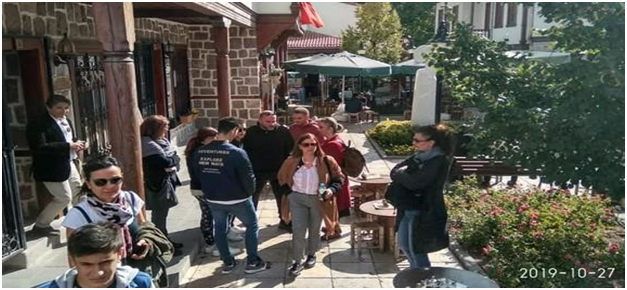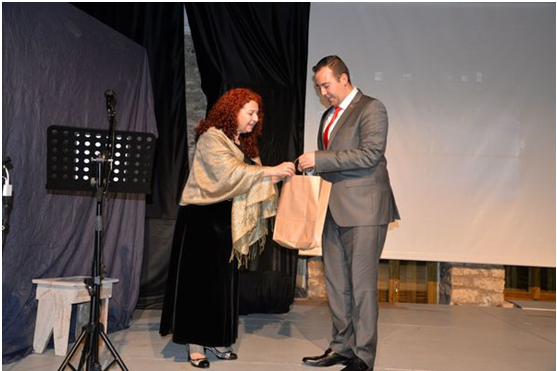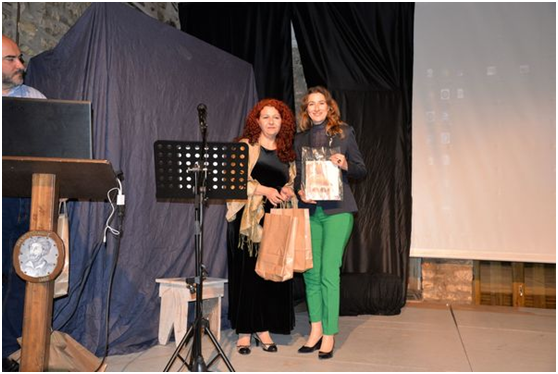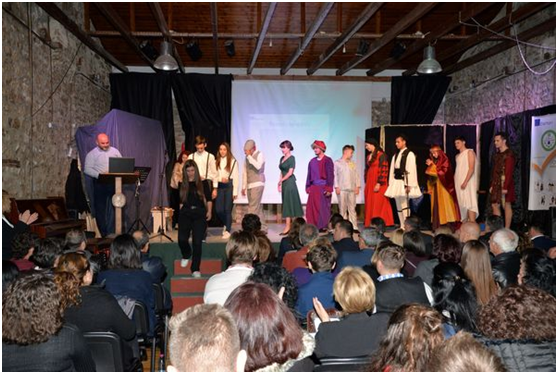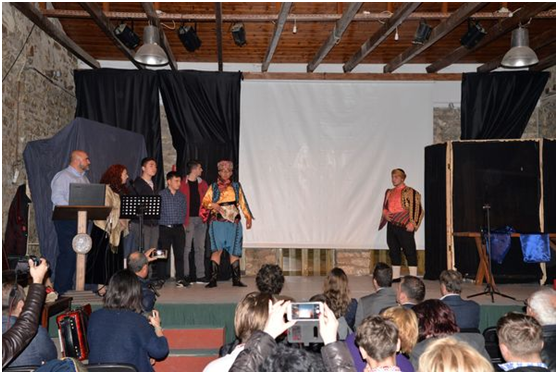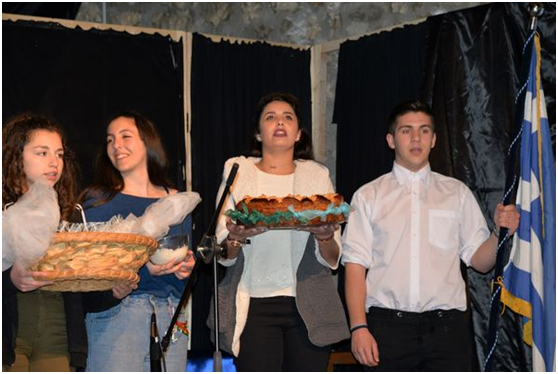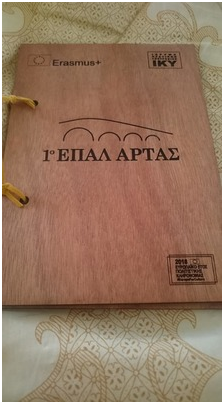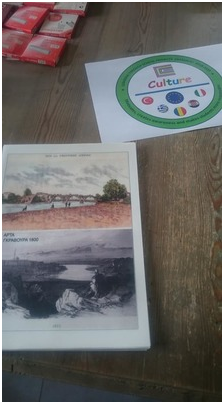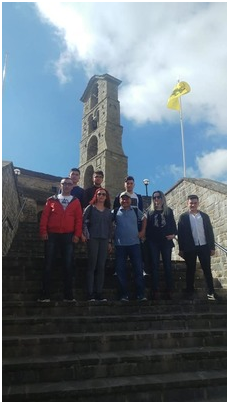The Online Meeting hosted by Romania on the Google Meet platform took place between the 8th-12th of May 2021.
The topic of the mobility was Our traditions – the treasures inherited from our ancestors.

On the first day, after the presentation of the host school, country and city, Mrs Coralia Costaș, head of PR Programs within the Programs, Projects Department of the Moldova National Museum Complex of Iași, Romania presented a short video about the traditions of Easter in Moldavia.
On the following days, the Coatian team talked about the traditions in Croatia (some dishes and wines, wedding, Christmas, holiday, family lunch).
Also, there was the presentation of the Turkish team about the traditions in Turkey (wedding, traditional dances, Hevuz feast, Hidirelluz, Imece Procedures, Lead Puring, Coffee Fortune Telling, Evil Eye Bead, Ebru (Marbling) Art).
The Greek team presented about the traditions in Greece (Christmas, Epiphany, Apokries – The Greek Carnival – the glorification of God Dionysos, Patras Carnival – video, Tsiknopempti Carnival, Kathara Deftera – 40 days before Easter – The Clean Monday in Greece and Cyprus, Easter Celebrations - Holy Week, Name Day, Friday the 13 th – evil day, Spiting for the evil will go away, My Big Fest).
The presentation of the Italian team contained interesting things about the customs & traditions in Italy (Transumanza – ancient custom in sheep – Abruzzo Appennine; poem Alcyone, Tratturo Celano – Foggia – archaeological area of Pietra abbondante, popular tradition Festi abbruzzensi: Celestian Forgiveness, Madonna who Escapes in Sulmona, The Feast of the Serpary in Cocullo, The Feast of Talami in Orsogna, I Banderesi, Handicrafts of Copper & Wrought iron in Guardiagrele, The Carding of wool in Abruzzo, Lace on the Tombolo Scanno, Wood working – Arischia, Leather, Enogastronomia: Spaghetti alla chitarre, Saffron of Navelli, Soup with Cardi all’abbruzzese, Terrmane virtues, Arrosticini, Parrozzo, Confetti of Sulmona, Gentian Liquor, Soffioni Abbruzzese).
-The Italian students also presented a culinary workshop about 3 recipes:
- Tiramisu – a desert with mascarpone cheese
- Coffee in Collector Moka
- Pasta .
The presentation of the Romanian team about the traditions in Romania contained spring traditions: Mărțișor, Palm Sunday, Easter; summer traditions: Sânziene, Assumption of the Blessed Virgin, autumn traditions: The Feast of Saint Parascheva, Saint Andrew, winters traditions: National Day, Christmas, The New Year, Dragobete.
The Romanian team also presented some plays in the New Year’s Eve (Plowing – Plugușor, The Goat Play, The Deer Play, The Bear Play, The Play of the Old Men, The Horses Play). There was also a short video about the Romanian traditions wedding
There was also a workshop on kahoot.it (11 questions about the traditions and the customs in each country of the project: Romania, Greece, Croatia, Italy, Turkey), as a feedback on the mobility.
On the final day, the Romanian students presented to the partners a film realised by the students about "Three Ierarchs" Church.
There was also a presentation of our city, Iași, realised by Mr Mihai Bulai, Phd teacher at "Alexandru Ioan Cuza" University of Iași, Geography department: the geographical dates, the economy, the industry, the history (Union, First Jewish Yiddish Theater, Oldest Synagogue in Romania), the museums, the traditions (Mărțișor, Babele, Easter, Cătălina Folklore, Pilgrimage of Saint Parascheva, Chrysantemum Season – Botanical Garden, Christmas, Winter Festival).
The purpose of the mobility was the aknowledgement and promotion of local customs and traditions in each partner country through awareness and understanding of the significance of these elements of culture, which give identity to the country / people they represent.
The objectives of the mobility in Romania have been achieved:
- enriching the general culture of the students / prof. participants, by knowing the “historical roots” of the popular creation specific to the countries of origin of the partners;
- awareness of the need to return as often as possible to the "origin" of the nation to which we belong in order to correctly understand what defines each of us, as a people, in a conglomeration of European nations, with historical / cultural and linguistic diversity;
- adding added value to educational management, with an emphasis on education through and for traditional cultural values in a multicultural world, of redefining the model of traditional culture from the perspective of the phenomenon of globalization, which "threatens" more and more to the integrity of cultural elements and national identity.

